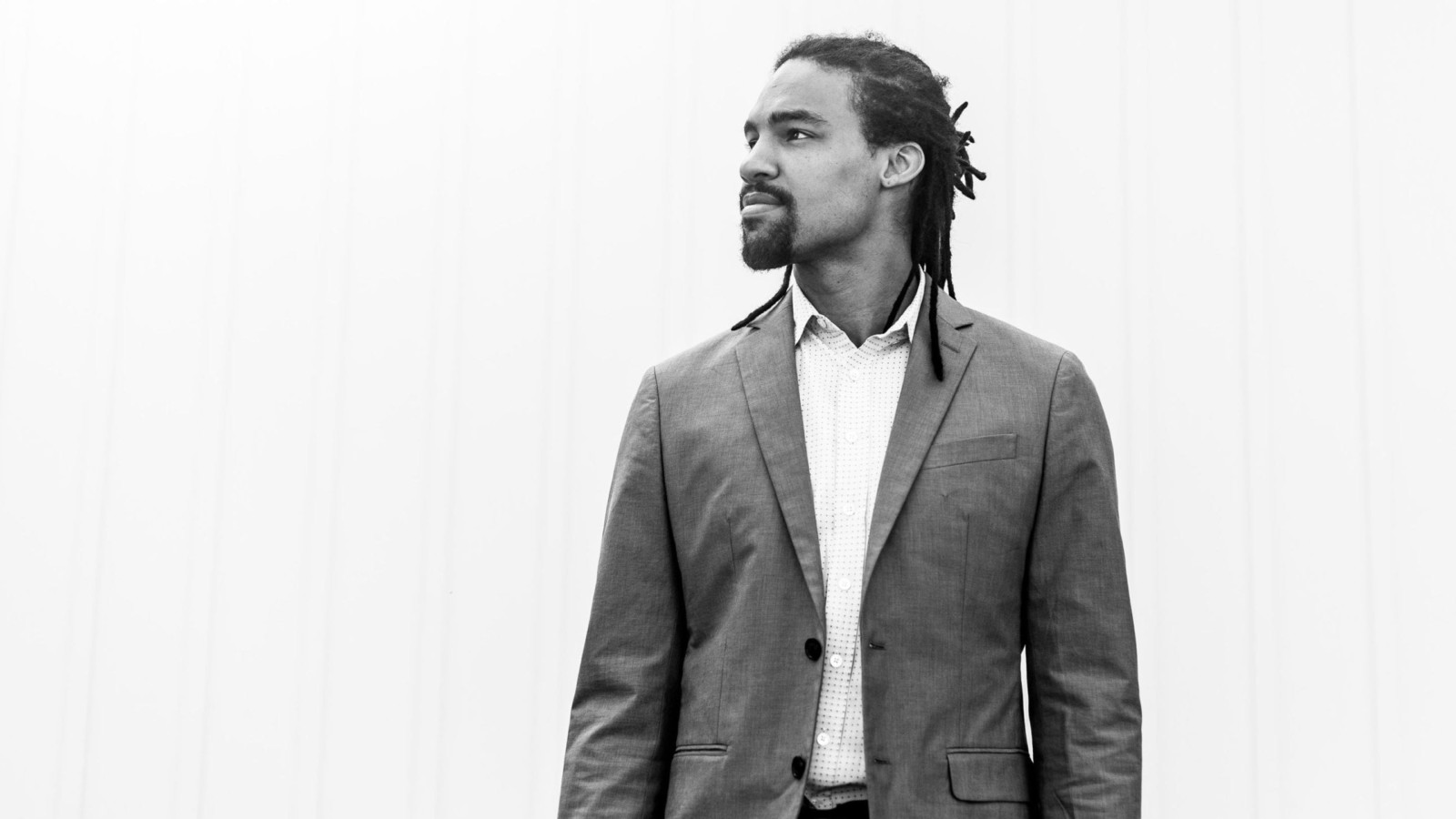A new album from Pierce Freelon ’02 connects generations
Pierce Freelon’s new album of children’s music was born out of silence. A politician, filmmaker, teacher, musician, and entrepreneur, Pierce is the son of Phil Freelon, architect of the National Museum of African American History and Culture in Washington, D.C., and jazz vocalist Nnenna Freelon. After his father was diagnosed with ALS in 2016, Pierce, then a professor at the University of North Carolina with a wife and two young children, would visit him often. “We’d talk and reminisce and play chess and watch TV, and eventually we’d run out of things to talk about,” he recalls. “I’d be scrolling through my phone and show him videos of Halloween parties, playing basketball, and spending time with his grandkids. It was a deeply emotional time, a vulnerable time, and a creative time for me.”
Full of ideas, Freelon would leave his father’s house and go right to his studio to start working with the clips and voice memos he’d discovered, putting them to beats, adding vocals. The next day, he’d share the compositions with his father. “I’d give him some headphones,” he says. “He would rock out, give me feedback.”
When his father died in 2019, the songs were still just fragments. Freelon set about completing them, and found revisiting his digital family archive both cathartic and healing. “People grieve in different ways,” he explains. “Some people sob, some eat ice cream. For me, music was my grieving tool.”
What eventually emerged is D.a.d., an album that uses hip-hop, soul, and electronic music to create what Freelon describes as “a family journal chronicling the life and times of a Black millennial father living in the South.” The topical and heartfelt songs—with titles such as “Tuck Me In,” “Gather Your Clothes,” “Movies and Popcorn and Video Games,” and “Daddy Daughter Day”—are interspersed with voice memos featuring Freelon and his children, Justice, now 12, and Stella, 10, who also performs on the record. The album ends with a voice memo of his late father’s advice on being an artist, and a last song, “Ascend,” “about becoming a phoenix and being fearless and resilient in the face of change.”
Making a children’s music album is just the latest achievement in Freelon’s multifaceted career. In the years since graduating from Williston, he has earned a B.A. in African and African American studies at UNC Chapel Hill and an M.A. in Pan African studies at Syracuse University; founded Blackspace, a digital makerspace for local youth in Durham; toured and recorded with his jazz/hip-hop quartet, The Beast; co-founded the Emmy Award- winning PBS web series Beat Making Lab, in which he travels the world teaching kids hip-hop and music production; and taught political science, music, and African American studies at UNC and North Carolina Central University. In 2017, he ran for mayor of Durham on a platform of “community, growth, youth, and love.” He was appointed this year to the Durham City Council, and is continuing work as the writer, composer, and co-director of The History of White People in America, an animated musical series (three episodes are on YouTube) that reexamines our country’s racial past through a format he describes as “somewhere between Hamilton and Schoolhouse Rock!”
Freelon’s eclectic interests were evident even in his days at Williston, where he played football but also starred as Sky Masterson in a multicultural production of Guys and Dolls. Growing up in Durham, he transferred to the school as a sophomore, following his sister Maya (named for Maya Angelou, a family friend), and reveled in the diversity he discovered. “Williston exposed me to the world at a really crucial time in my development,” he says, noting that one of his roommates was a fellow football player from Brooklyn with roots in Trinidad, another was a hip- hop fan from Taiwan, a third was a Moroccan by way of Canada who spoke French and Arabic. “There was such a rich international community in my peer group. I always felt very comfortable interacting with people of radically different cultures.”
One Williston connection in particular had a lasting impact, Freelon recalls: Sherrie-Ann Gordon ’00, who was two grades above him and a charismatic presence on campus. “My first time rapping in a proper venue was at Williston, as a part of her senior project,” he recalls, “It was a hip-hop show with dance, performance, and poetry, and that was a really special creative experience for me.” Gordon died from cancer in 2015, Freelon notes, but he remembers her in particular for “the joy that she brought to creative spaces and the way that she looked out, especially for the Black students on campus, in a very nurturing way.”
Freelon’s new album, his first for children, clearly shares that sense of creative joy and a nurturing spirit. But as a Black artist in the children’s music field, he understands that his work also carries a political message. “I’ve learned from studying Black feminist thinkers that the personal is political,” he explains. “And so my personal story has political implications in the broader marketplace of children’s music, where Black voices are seldom heard, and Black fathers even less so. There are certain stereotypes around Black masculinity and fatherhood, thinly veiled racist stereotypes, that aren’t true. That certainly wasn’t my experience.”
Which returns us to Phil Freelon, and how his son’s work is passing along the values he stood for. “If you have a loving parent, you don’t always think about the ways they’ve loved or cared for you, until they’re gone,” Freelon notes. “This album was really a product of reflecting on, How was he a great dad? How did he parent? How did he love me? And how is that love manifested in abundance in my life?”

